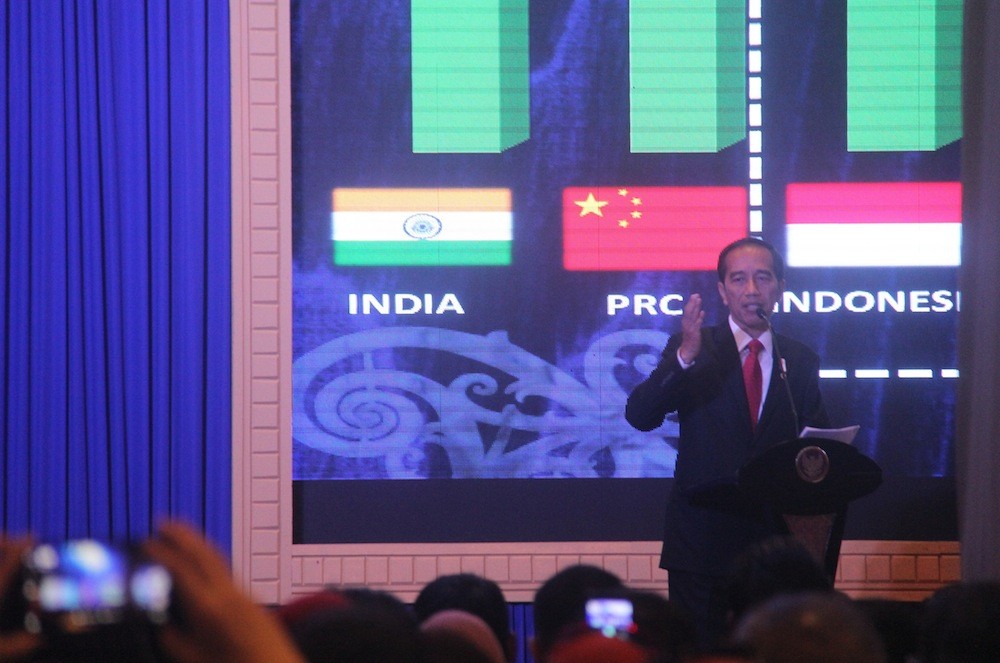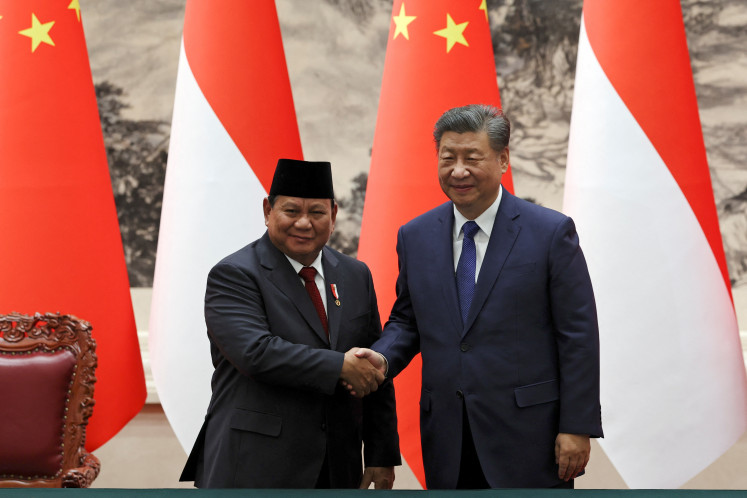Popular Reads
Top Results
Can't find what you're looking for?
View all search resultsPopular Reads
Top Results
Can't find what you're looking for?
View all search resultsInternational tax dispute resolution
In doing business, MNEs have been trying to determine the best shape for their supply chains within their group in order to get maximum benefits, and tax is one of the key factors that will be considered by MNEs to determine their places of doing business.
Change text size
Gift Premium Articles
to Anyone
I
n 2011, Rajul Awasthi, tax policy and revenue administration work stream leader for the Europe and Central Asia region of the World Bank, mentioned in his presentation that approximately two-thirds of world trade is a related-party transaction within Multinational Enterprises (MNEs) and this is likely to grow further in the future.
The role of MNEs in world trade has dramatically increased over the last two decades. This is reflected by the increase in integration of nations where there is no longer a “border” between countries. The movement of goods, services, labor, capital and investment has never been easier.
In doing business, MNEs have been trying to determine the best shape for their supply chains within their group in order to get maximum benefits, and tax is one of the key factors that will be considered by MNEs to determine their places of doing business.
That is why in determining place of business, MNEs will usually choose a country that has a tax treaty with a country in which its affiliated companies are located.
As sovereign countries, each country has a sovereign right to determine its fiscal regime. The interaction between domestic legal systems among countries often triggers double taxation.
In the case of transfer pricing within the MNEs, double taxation will occur where the same object of income of the MNEs is taxed twice by two jurisdictions. Consequently, it will give disincentives for taxpayers and in the long run will hamper investment inflows.
To cope with this situation, Indonesia should remove the existence of double taxation that has occurred and will occur.
This is in line with President Joko “Jokowi” Widodo’s concept of boosting the Indonesian economy by reducing all barriers to investment. Removing double taxation to attract investment is among the challenges. Thus, international tax dispute resolution has to be strengthened.
The mechanism of resolving double taxation issues are contained in bilateral tax treaties. International tax dispute resolution comprises two mechanisms.
The first is Advance Pricing Agreement (APA) that, according to the Organization for Economic Co-operation and Development (OECD), is a kind of prevention procedure that determines in advance the transfer price between related parties. The second is Mutual Agreement Procedure (MAP), which is a mechanism between tax authorities to resolve disputes regarding double taxation. Both are mechanisms that can be used by taxpayers to eliminate double taxation.
There are several benefits for both taxpayers and tax authorities in entering into MAPs and APAs. For the taxpayers, MAP is another dispute resolution mechanism other than tax courts.
In contrast with tax courts, where taxpayers or tax authorities could win 100 percent the case, there will be no such thing in an MAP.
The two tax authorities will negotiate the portion of taxpayer profit to be shared between the two countries. Thus, it is possible for neither taxpayers nor a tax authority to win 100 percent of the case.
In other words, it will be impossible for taxpayers to lose 100 percent of the dispute.
The benefit for taxpayers entering into an APA is certain. There will be no tax adjustment made for the covered transactions in a certain covered period, if the taxpayers follow the agreement between the two tax authorities and taxpayers in two jurisdictions.
The benefits of APAs and MAPs are not only for taxpayers, but also for tax authorities. APAs will probably reduce a tax authority’s resources to audit, and thus resources can be used to monitor or to audit high risk taxpayers.
Moreover, it may reduce the high load of objections and appeals in regional tax offices. In terms of tax revenue, tax authorities will have stable revenue from taxpayers who enter into an APA, since the transfer price has been determined in advance.
Indonesia, particularly ITA, seems to handle the APA and MAP more seriously. It is proven by the existence of a new directorate and division under the Directorate General of Taxation, which handles these matters.
In addition, as a member of the Forum on Tax Administration (FTA), Indonesia will be reviewed each year by the other members of FTA (peer review), and the statistics regarding the inventory of MAPs and APAs or those that have been settled will be published in 2017.
This, of course, will generate tensions for the Indonesia government in handling these issues.
Investors who invest their money in Indonesia of course will see how the government settles its international tax disputes.
Thus, Indonesia is likely to speed up and make simpler the process of APA and MAP in the future.
***
The writer is studying for a Masters of Advanced Studies in International Taxation at the University of Lausanne, Switzerland, and works at the International Tax Dispute Prevention and Settlement Sub directorate, Directorate of International Taxation.
---------------
We are looking for information, opinions, and in-depth analysis from experts or scholars in a variety of fields. We choose articles based on facts or opinions about general news, as well as quality analysis and commentary about Indonesia or international events. Send your piece to community@jakpost.com. For more information click here.










